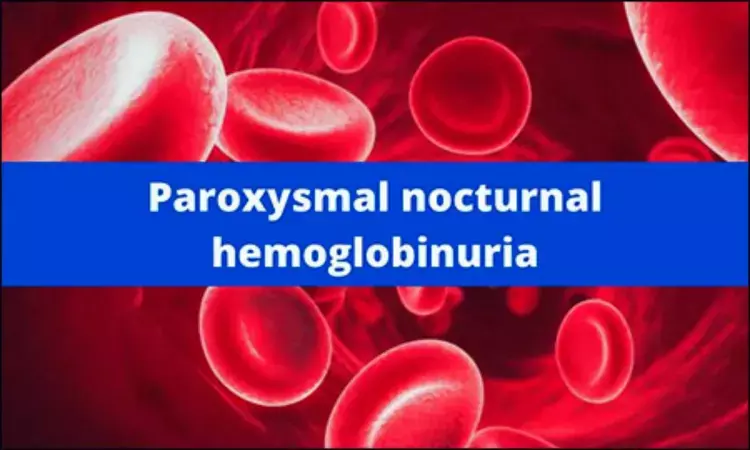- Home
- Medical news & Guidelines
- Anesthesiology
- Cardiology and CTVS
- Critical Care
- Dentistry
- Dermatology
- Diabetes and Endocrinology
- ENT
- Gastroenterology
- Medicine
- Nephrology
- Neurology
- Obstretics-Gynaecology
- Oncology
- Ophthalmology
- Orthopaedics
- Pediatrics-Neonatology
- Psychiatry
- Pulmonology
- Radiology
- Surgery
- Urology
- Laboratory Medicine
- Diet
- Nursing
- Paramedical
- Physiotherapy
- Health news
- Fact Check
- Bone Health Fact Check
- Brain Health Fact Check
- Cancer Related Fact Check
- Child Care Fact Check
- Dental and oral health fact check
- Diabetes and metabolic health fact check
- Diet and Nutrition Fact Check
- Eye and ENT Care Fact Check
- Fitness fact check
- Gut health fact check
- Heart health fact check
- Kidney health fact check
- Medical education fact check
- Men's health fact check
- Respiratory fact check
- Skin and hair care fact check
- Vaccine and Immunization fact check
- Women's health fact check
- AYUSH
- State News
- Andaman and Nicobar Islands
- Andhra Pradesh
- Arunachal Pradesh
- Assam
- Bihar
- Chandigarh
- Chattisgarh
- Dadra and Nagar Haveli
- Daman and Diu
- Delhi
- Goa
- Gujarat
- Haryana
- Himachal Pradesh
- Jammu & Kashmir
- Jharkhand
- Karnataka
- Kerala
- Ladakh
- Lakshadweep
- Madhya Pradesh
- Maharashtra
- Manipur
- Meghalaya
- Mizoram
- Nagaland
- Odisha
- Puducherry
- Punjab
- Rajasthan
- Sikkim
- Tamil Nadu
- Telangana
- Tripura
- Uttar Pradesh
- Uttrakhand
- West Bengal
- Medical Education
- Industry
Oral Iptacopan monotherapy improves outcomes in patients with paroxysmal nocturnal hemoglobinuria: NEJM

France: A recent study has shown improved clinical and hematologic outcomes with iptacopan treatment in anti-C5-treated patients with persistent anemia, in whom iptacopan showed superiority to anti-C5 therapy, and in patients who had not received complement inhibitors.
The study was published online in the New England Journal of Medicine on March 14, 2024.
A lack of oral treatments and persistent hemolytic anemia are challenges for patients with paroxysmal nocturnal hemoglobinuria who have received anti-C5 therapy or have not received complement inhibitors. Iptacopan is a first-in-class oral factor B inhibitor shown to improve hemoglobin levels in these patients.
Against the above background, Régis Peffault de Latour, Université de Paris (R.P.L.), Paris, France, and colleagues assessed iptacopan monotherapy over 24 weeks in patients with hemoglobin levels of less than 10 g per deciliter in two phase 3 trials.
In the first trial, anti–C5–treated patients were randomly assigned to switch to iptacopan or to continue anti-C5 therapy. In the second, single-group trial, patients who had not received complement inhibitors and had lactate dehydrogenase (LDH) levels more than 1.5 times the upper limit of the normal range received iptacopan.
In the first trial, the two primary endpoints were a rise in the hemoglobin level of at least 2 g per deciliter from baseline and a hemoglobin level of at least 12 g per deciliter, each without red-cell transfusion. The primary endpoint for the second trial was an increase in hemoglobin level of at least 2 g per deciliter from baseline without red-cell transfusion.
The researchers reported the following findings:
- In the first trial, 51 of the 60 patients who received iptacopan had an increase in the hemoglobin level of at least 2 g per deciliter from baseline, and 42 had a hemoglobin level of at least 12 g per deciliter, each without transfusion; none of the 35 anti-C5–treated patients attained the end-point levels.
- In the second trial, 31 of 33 patients had an increase in the hemoglobin level of at least 2 g per deciliter from baseline without red-cell transfusion.
- In the first trial, 59 of the 62 patients who received iptacopan and 14 of the 35 anti–C5–treated patients did not require or receive transfusion; in the second trial, no patients required or received transfusion.
- Treatment with iptacopan increased hemoglobin levels, reduced fatigue, reduced reticulocyte and bilirubin levels, and resulted in mean LDH levels less than 1.5 times the upper limit of the normal range. Headache was the most frequent adverse event with iptacopan.
"Iptacopan treatment improved clinical and hematologic outcomes in anti-C5-treated patients with persistent anemia - in whom iptacopan showed superiority to anti-C5 therapy - and in patients who had not received complement inhibitors," the researchers wrote.
Reference:
Peffault de Latour R, Röth A, Kulasekararaj AG, Han B, Scheinberg P, Maciejewski JP, Ueda Y, de Castro CM, Di Bona E, Fu R, Zhang L, Griffin M, Langemeijer SMC, Panse J, Schrezenmeier H, Barcellini W, Mauad VAQ, Schafhausen P, Tavitian S, Beggiato E, Chew LP, Gaya A, Huang WH, Jang JH, Kitawaki T, Kutlar A, Notaro R, Pullarkat V, Schubert J, Terriou L, Uchiyama M, Wong Lee Lee L, Yap ES, Sicre de Fontbrune F, Marano L, Alashkar F, Gandhi S, Trikha R, Yang C, Liu H, Kelly RJ, Höchsmann B, Kerloeguen C, Banerjee P, Levitch R, Kumar R, Wang Z, Thorburn C, Maitra S, Li S, Verles A, Dahlke M, Risitano AM. Oral Iptacopan Monotherapy in Paroxysmal Nocturnal Hemoglobinuria. N Engl J Med. 2024 Mar 14;390(11):994-1008. doi: 10.1056/NEJMoa2308695. PMID: 38477987.
Dr Kamal Kant Kohli-MBBS, DTCD- a chest specialist with more than 30 years of practice and a flair for writing clinical articles, Dr Kamal Kant Kohli joined Medical Dialogues as a Chief Editor of Medical News. Besides writing articles, as an editor, he proofreads and verifies all the medical content published on Medical Dialogues including those coming from journals, studies,medical conferences,guidelines etc. Email: drkohli@medicaldialogues.in. Contact no. 011-43720751


